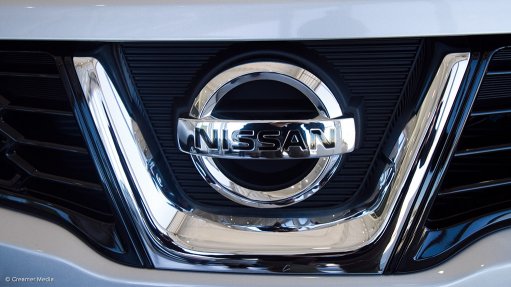
Photo by: Duane Daws
The Renault-Nissan Alliance and Stallion Group said on Wednesday that they had signed a memorandum of understanding (MoU) to start vehicle assembly in Nigeria.
This means Nissan was set to become the first major global auto manufacturer to assemble vehicles in Nigeria.
The deal was signed on the expectation of final approval by the Nigerian government of its new Automobile Industrial Policy, designed to encourage development of the auto industry in Nigeria.
The MoU would see Stallion – already Nissan’s exclusive distributor in Nigeria – expand its existing commercial vehicle plant, VON Automobile, in Lagos.
The plant’s capacity would grow to 45 000 units a year, and it would assemble a range of cars, light-duty trucks, pickups and vans.
Nissan said in a statement that full details of the product lineup would be confirmed at a later date. However, it was anticipated that the first product to be introduced would be the Nissan Patrol sports-utility vehicle, in 2014.
Capacity at the plant would also be made available to Nissan’s Alliance partner, Renault, to be used according to future business needs.
“We welcome the proactive measures being taken by the government of Nigeria to encourage inward investment and job creation, driven by local auto manufacturing,” commented Nissan president and CEO Carlos Ghosn.
“Together with our local partner, Nissan is preparing to make Nigeria a significant manufacturing hub in Africa. As the first-mover in Nigeria, we are positioned for the long-term growth of this market and across the broader continent.”
“The new automotive policy spearheaded by His Excellency the President . . . of the Federal Republic of Nigeria, Dr Goodluck Jonathan, and the Honorable [Industry, Trade and Investment] Minister Olusegun Aganga, is a laudable government initiative aimed at making Nigeria the regional leader in the industry,” added Stallion Group chairperson Sunil Vaswani.
“Our group is committed to invest in a fully integrated automobile industry that fosters the creation of several ancillary industries with associated socioeconomic benefits.”
Nissan said on Wednesday that it was “positioned for significant future growth in Africa” as part of its mid-term business strategy.
The company aimed to double yearly sales on the continent by the 2016 financial year, up from 110 000 units at the end of the 2012 financial year.
To help achieve this, a number of new models had already been confirmed, including a new bakkie, which would be produced by Nissan, at its plant in Pretoria, as well as the launch of the Datsun brand in South Africa before the end of the 2014 financial year.
Nissan’s financial year ran from March 31 to March 31.
Exports to Nigeria to Continue
Nissan South Africa (SA) corporate GM Dudu Mwelase says the Japanese manufacturer’s Pretoria plant would remain its largest African plant.
“We have plans to increase capacity here. In the short term, volumes in the Nigerian plant will be modest as we develop the operation and the business, [and] the plant will only serve the domestic Nigerian market.
“In fact, we think that the two plants will complement each other. [Nissan SA] will continue to export to Nigeria.”
Mwelase confirmed that Nissan SA’s Pretoria plant was being upgraded and expanded for production of a new one-ton pick-up for the global market in the next few years.
“We cannot confirm the start of the production date at this point.”
Nissan SA currently produced the NP300 one-ton pickup for the local and export markets, including the rest of Africa.
Potential, But Not Immediate Threat
According to the Automotive Industry Export Council’s Export Manual, Nigeria was South Africa’s ninth-biggest export destination in terms of new vehicles and components in 2012, at R2.13-billion, up from R1.35-billion in 2011.
There were seven African countries in the list of top-twenty export destinations for South African trucks, bakkies, cars and components, including Algeria and Angola.
There was “no doubt” that Nigeria’s new auto stimulus policy posed a threat to South Africa’s vehicle exports to Africa, said independent industry expert and former McCarthy CEO Brand Pretorius.
“Owing to the repercussions of the recent strikes in South Africa’s automotive industry we are left vulnerable.
“Should the Nissan/Stallion plant become a reliable source of world-class vehicles at competitive prices, other manufacturers may follow.
“Luckily for the South African industry, however, it will take some time to develop reliable component manufacturers in Nigeria. Other hurdles include the country’s energy supply problems, as well as its poor infrastructure. The threat to South Africa is, therefore, more medium-term.”